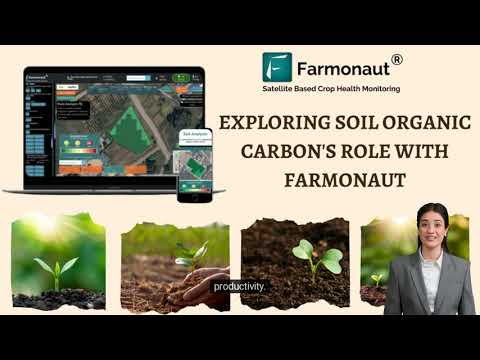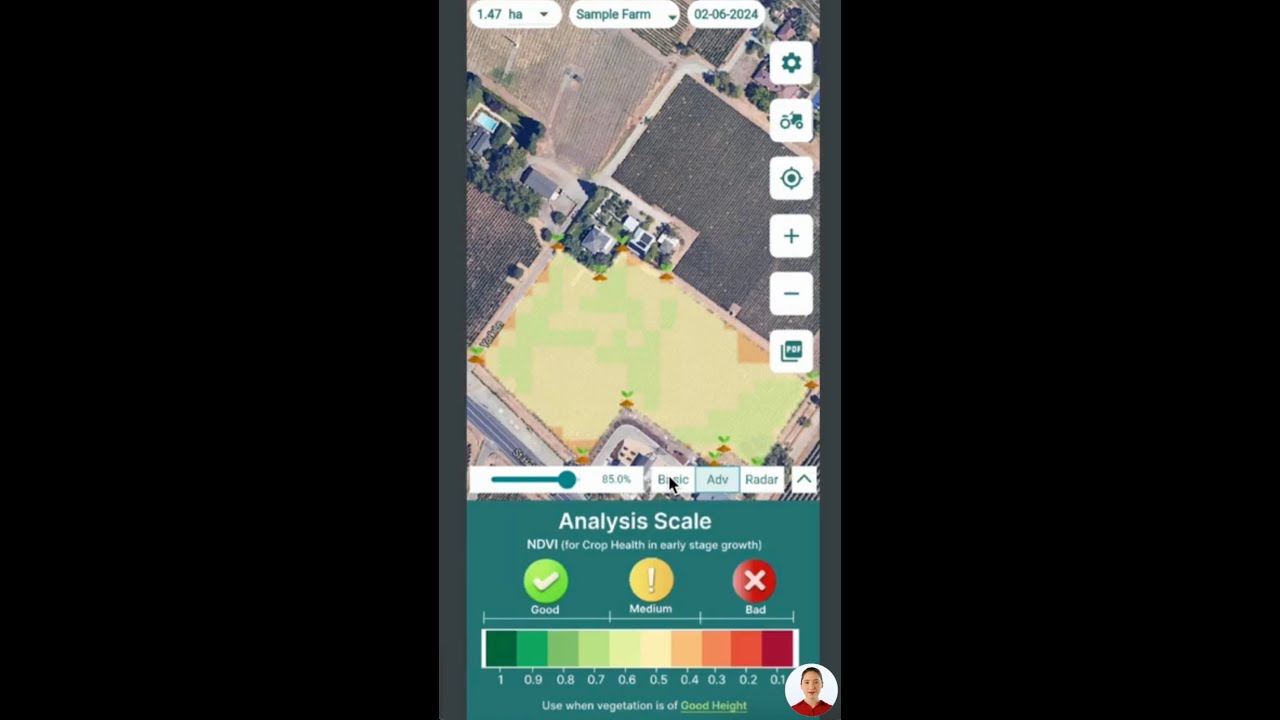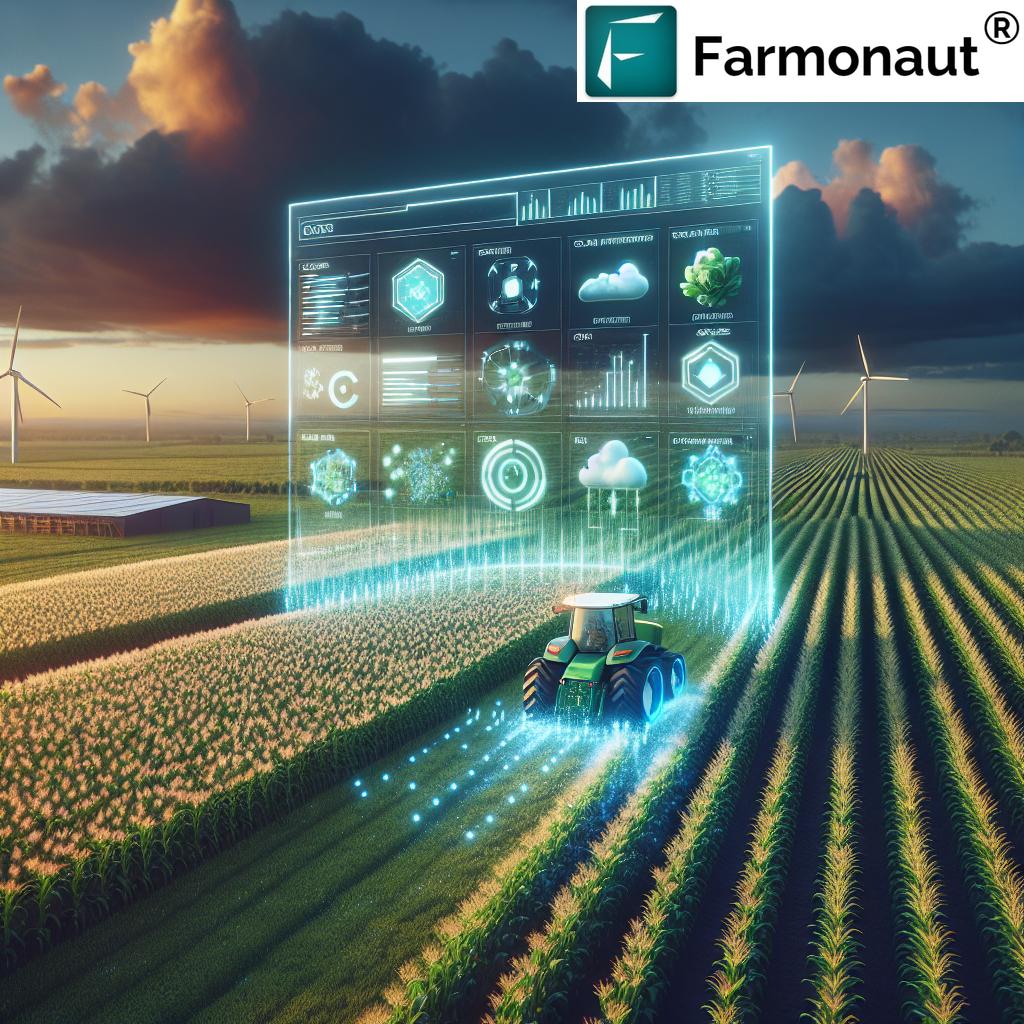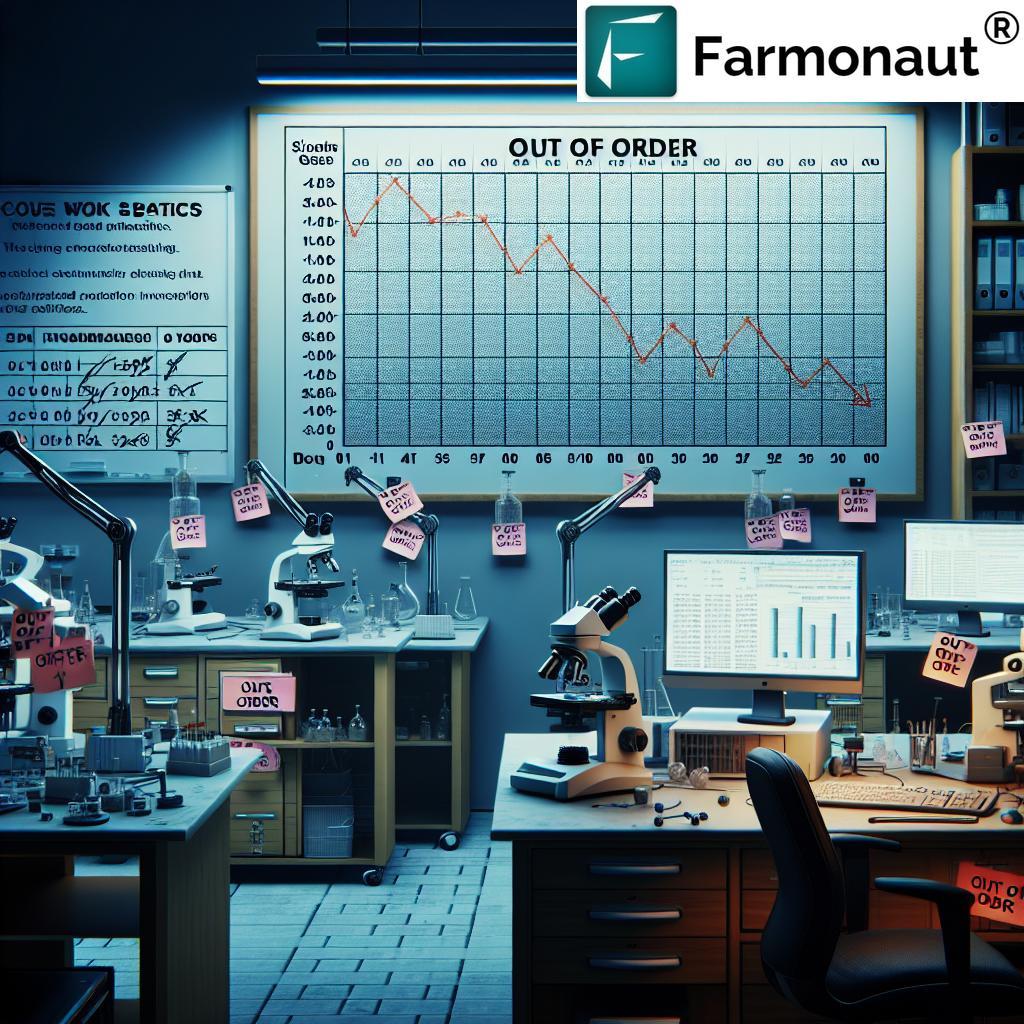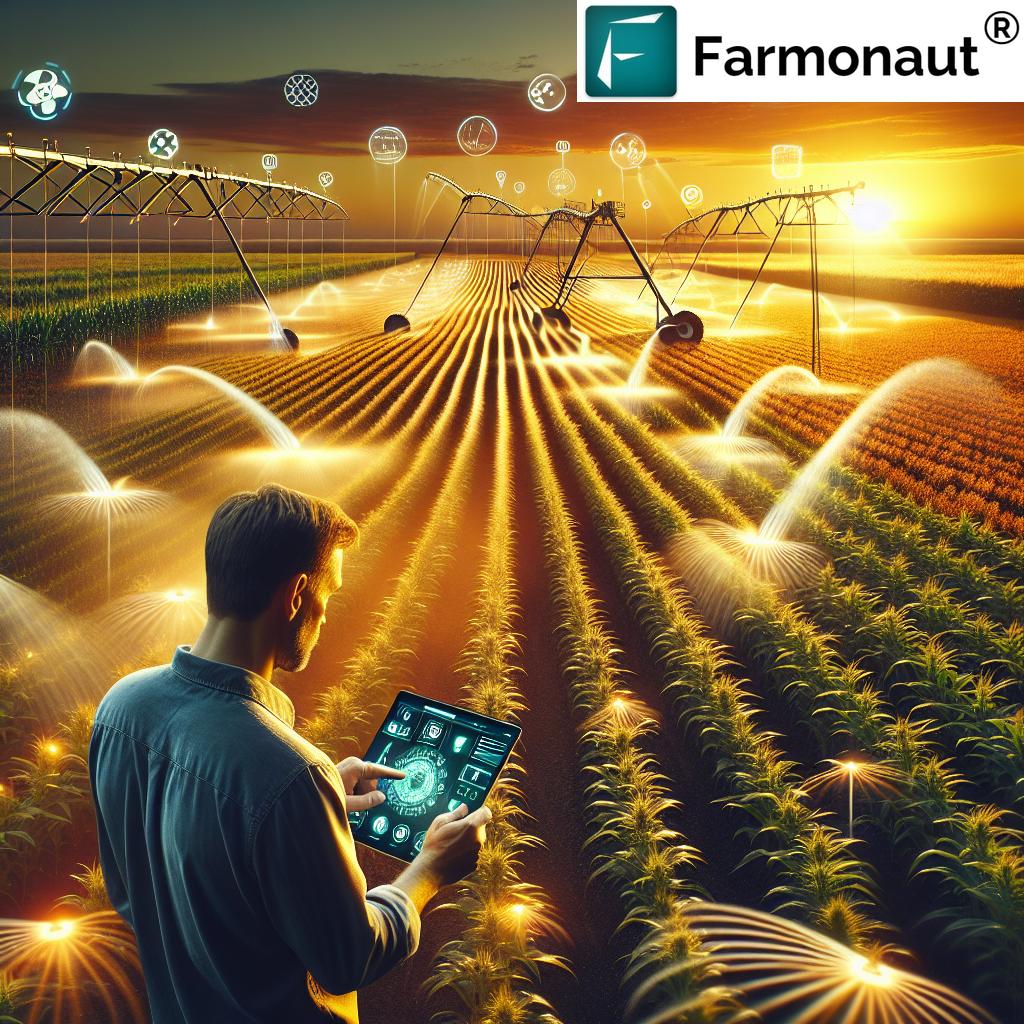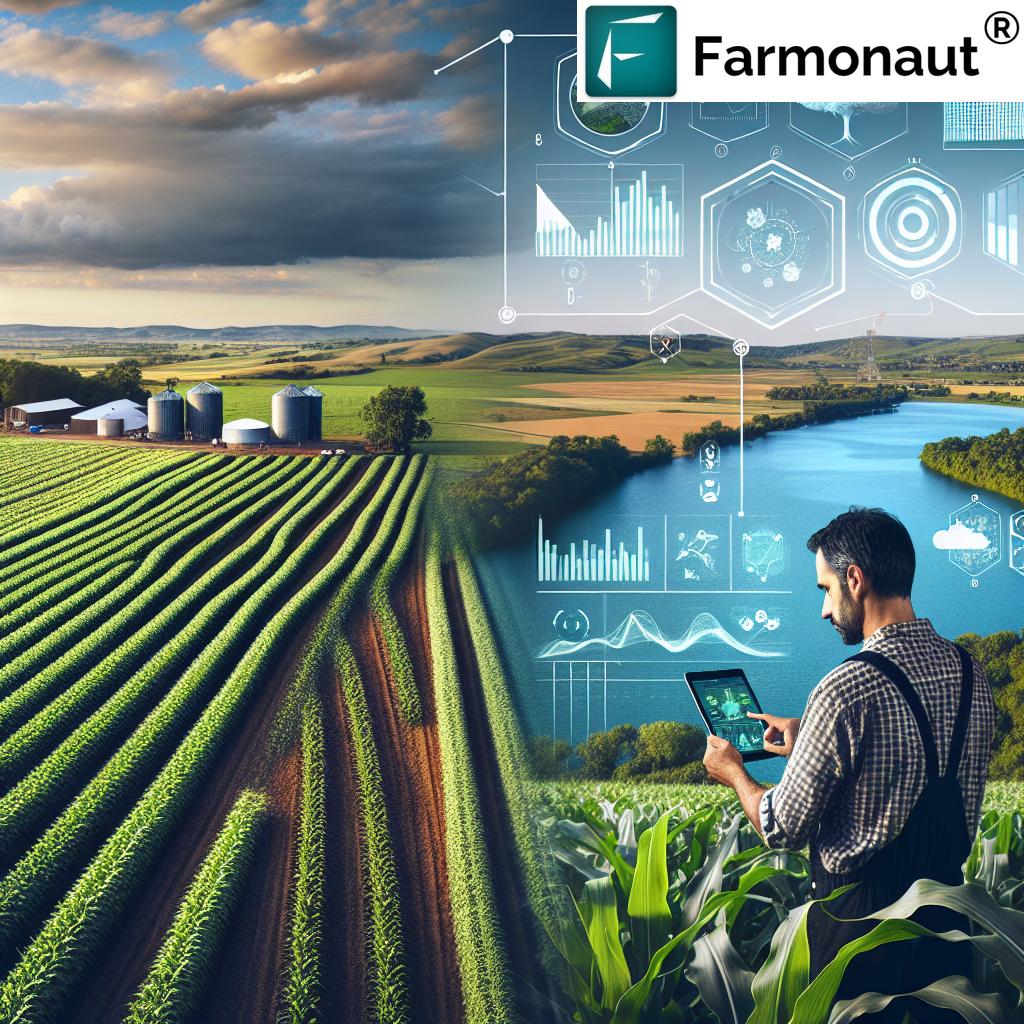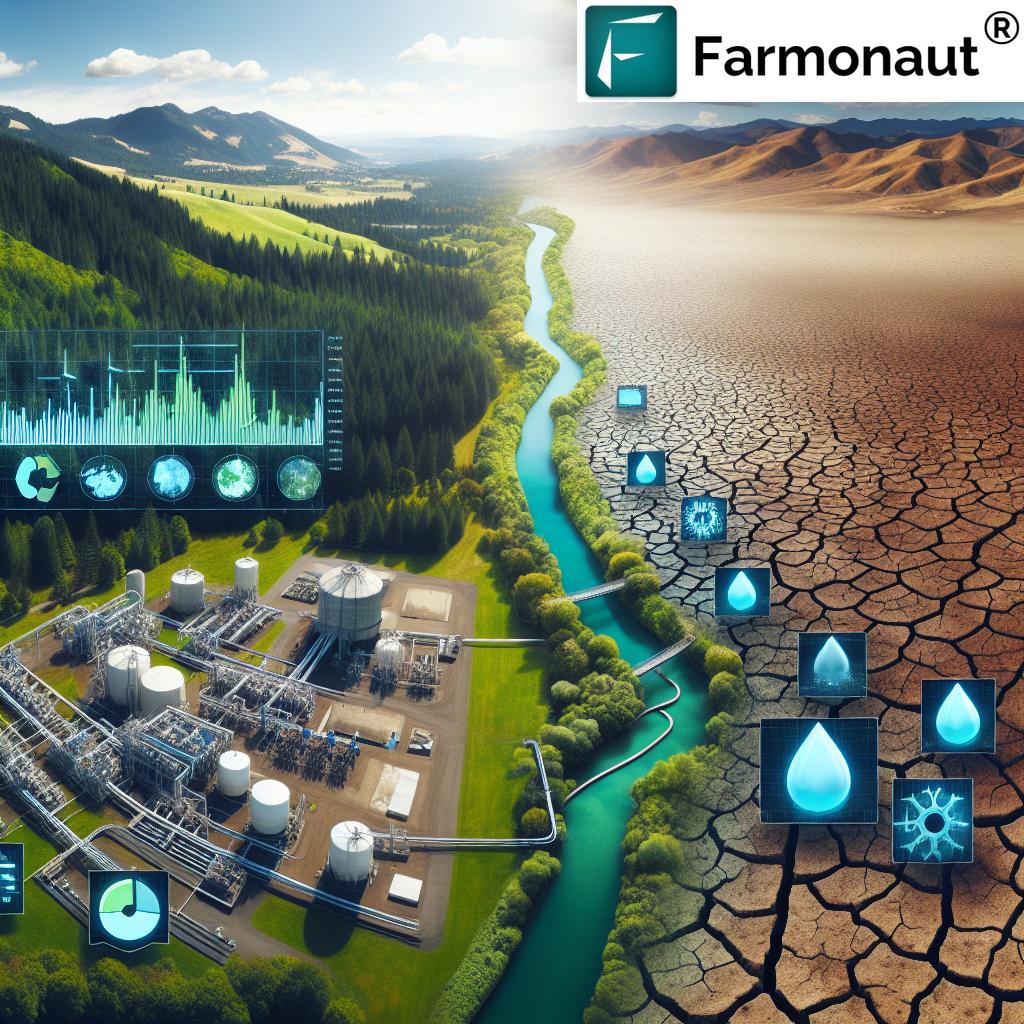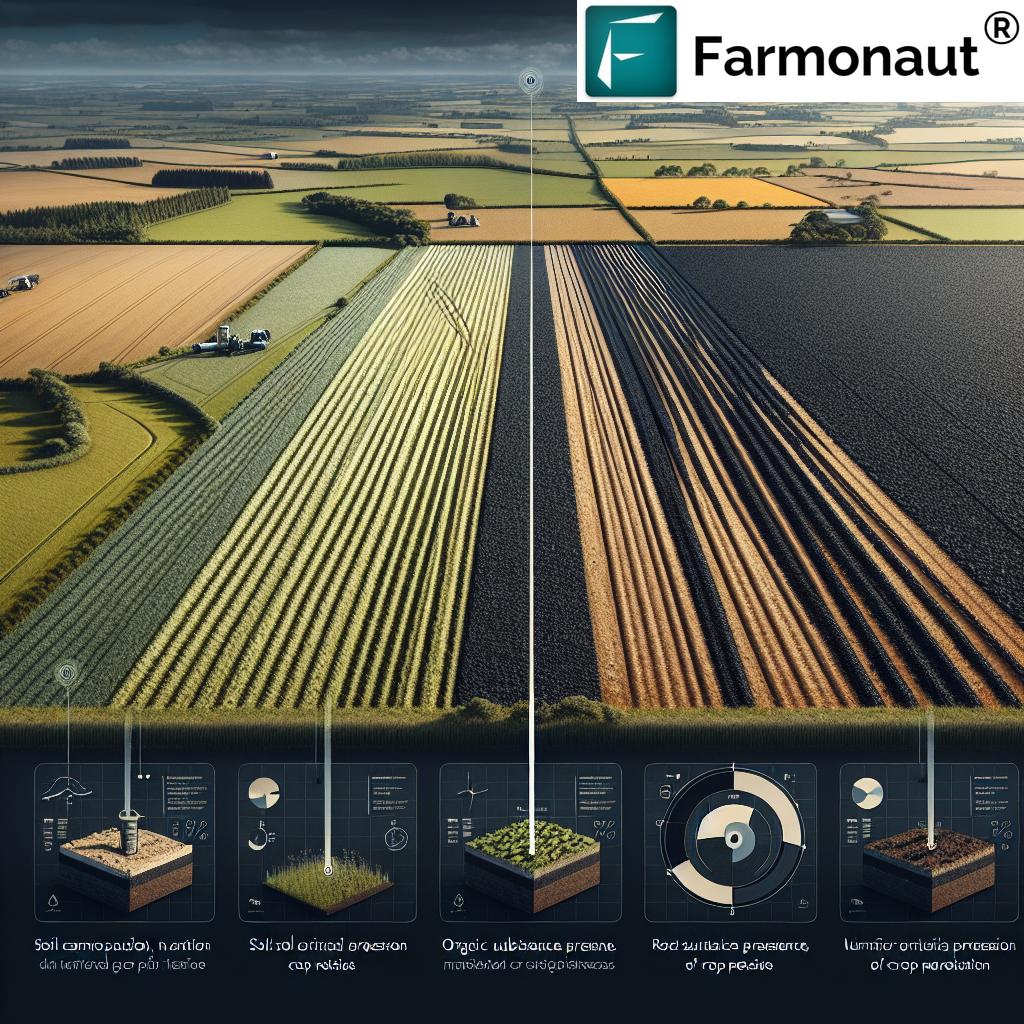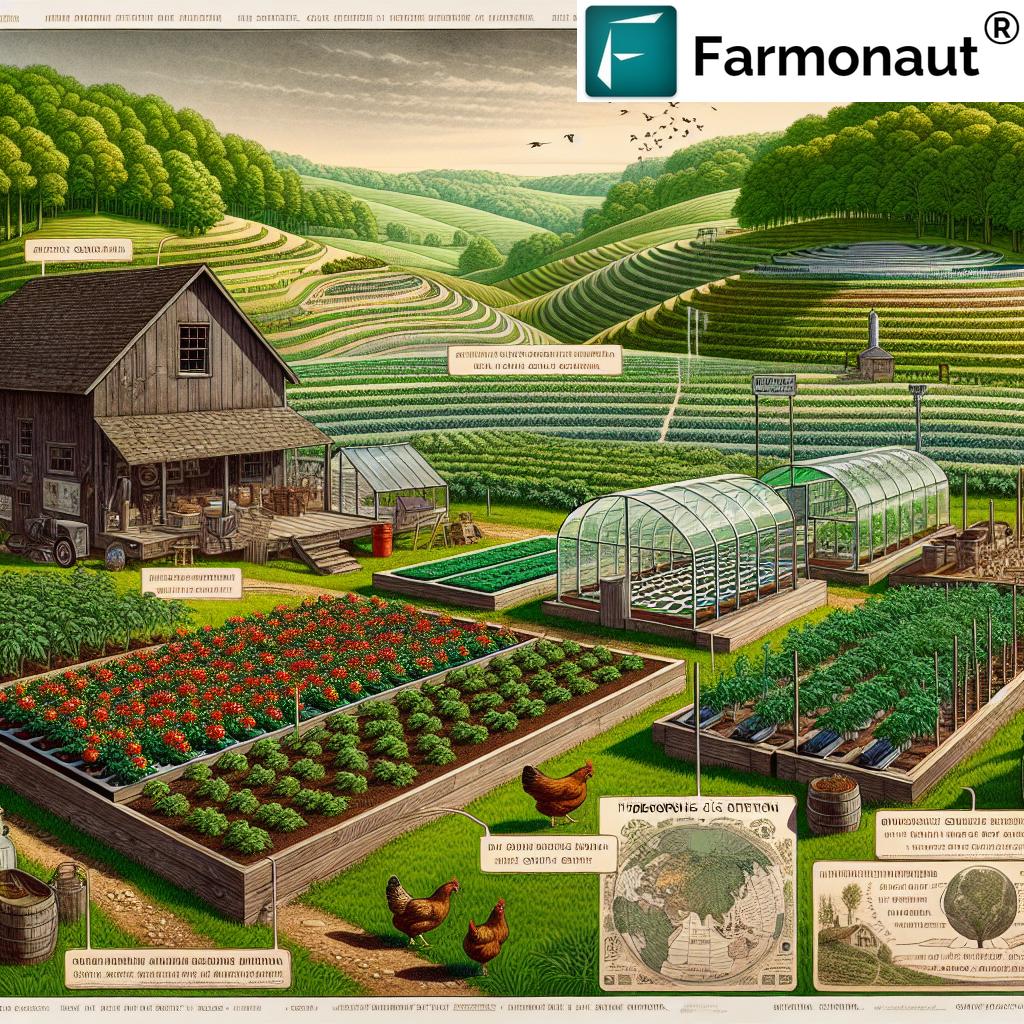Sustainable Agriculture Meets Social Impact: Hydroponic Lettuce Farm Acquisition Boosts Job Training in Michigan
“A hydroponic farm in Michigan produces 1.5 million pounds of salad greens annually using 90% less water and land than traditional farming.”
In an exciting development for sustainable agriculture jobs and the Michigan agriculture industry, we’re witnessing a groundbreaking merger of innovation and social responsibility. The recent acquisition of a cutting-edge hydroponic lettuce farm in Kent County, Michigan, by a vocational rehabilitation nonprofit is set to revolutionize both sustainable farming methods and job training for people with disabilities. This collaboration marks a significant milestone in the evolution of indoor farming technology and its potential to address multiple societal challenges simultaneously.
At Farmonaut, we’re thrilled to see such advancements in sustainable agriculture. While we focus on providing satellite-based farm management solutions, we recognize the importance of diverse approaches to agricultural innovation. Let’s delve into this remarkable story and explore its implications for the future of farming and community development.
The Acquisition: A New Chapter in Sustainable Farming
CALEDONIA, MI – In a move that has sent ripples through the agricultural community, Peckham, a renowned vocational rehabilitation nonprofit, has expanded its agriculture business by acquiring Revolution Farms. This 3.5-acre, hydroponic, indoor lettuce farm located in Caledonia, Kent County, represents a significant leap forward in sustainable farming practices.
While the purchase price remains undisclosed, the acquisition brings approximately 30 Revolution Farms employees under the Peckham umbrella, expanding their workforce and expertise in hydroponic lettuce farming. This merger not only promotes job training for people with disabilities but also enhances local produce distribution across the Midwest.
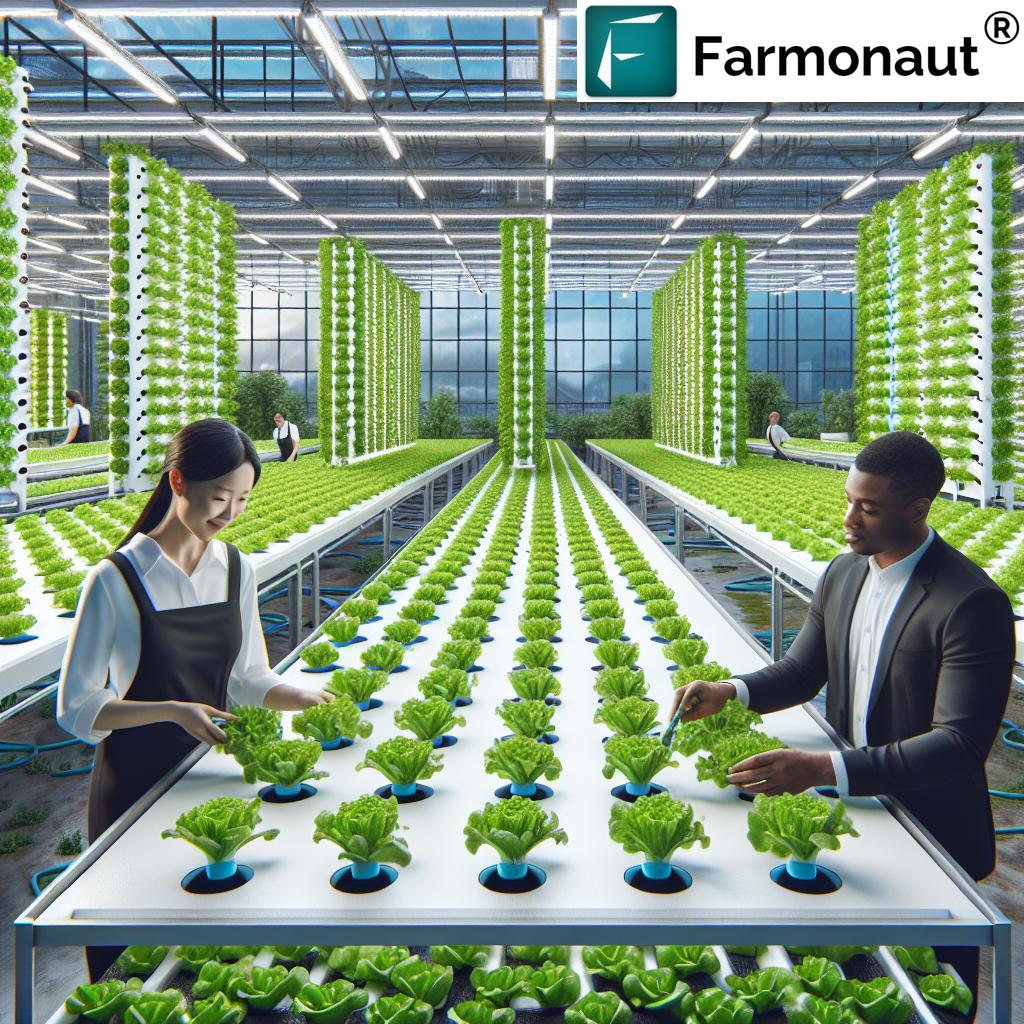
Revolution Farms: A Pioneer in Hydroponic Agriculture
Founded in 2018, Revolution Farms has quickly established itself as a leader in sustainable agriculture. The farm’s impressive statistics speak volumes about its efficiency and impact:
- Annual production of nearly 1.5 million pounds of salad greens
- Distribution to grocery chains, restaurants, and hospitality groups throughout the Midwest
- Utilization of 90% less water and land compared to traditional farming methods
- Reduction of travel distance for produce by 95%, ensuring optimal freshness for consumers
These achievements align perfectly with the growing demand for sustainable farming methods and locally sourced produce. The hydroponic farm’s ability to maximize yield while minimizing resource usage exemplifies the potential of indoor farming technology to address food security and environmental concerns simultaneously.
Peckham: Empowering Through Employment
Peckham’s acquisition of Revolution Farms represents more than just a business transaction; it’s a union of purpose-driven organizations. As a nonprofit dedicated to providing job training for people with disabilities and those facing employment barriers, Peckham’s expansion into hydroponic agriculture opens up new avenues for vocational rehabilitation programs.
The organization’s diverse portfolio now includes:
- A 2.5-acre produce farm in Lansing, growing fruits, vegetables, herbs, and flowers
- Federal call centers in Grand Rapids
- Three military apparel manufacturing facilities in Michigan
- Operations in Phoenix, Arizona, and London, Kentucky
Last fiscal year, Peckham’s impact was substantial:
- Over 7,500 individuals participated in their programs
- More than $104 million in wages paid
This acquisition allows Peckham to further its mission while contributing to the growth of Michigan’s agricultural sector.
The Synergy of Sustainability and Social Impact
The collaboration between Peckham and Revolution Farms represents a unique intersection of sustainable agriculture and social responsibility. By combining Revolution Farms’ expertise in hydroponic lettuce farming with Peckham’s commitment to vocational rehabilitation, this partnership is poised to create a ripple effect of positive change.
“A vocational rehabilitation nonprofit’s acquisition of an indoor farming facility in Kent County, Michigan, combines sustainable agriculture with job training for people with disabilities.”
Key benefits of this merger include:
- Expansion of sustainable agriculture jobs in Michigan
- Enhanced opportunities for job training in cutting-edge agricultural techniques
- Increased local produce distribution, reducing carbon footprint
- Promotion of water and land conservation through hydroponic farming
This innovative approach to combining business growth with social impact sets a powerful example for other industries to follow.
The Future of Agriculture: Hydroponic Farming and Beyond
The acquisition of Revolution Farms by Peckham highlights the growing importance of hydroponic farming in the future of agriculture. As we face challenges such as climate change, water scarcity, and increasing food demand, innovative farming methods like hydroponics offer sustainable solutions.
At Farmonaut, while we specialize in satellite-based farm management solutions, we recognize the complementary role that indoor farming technology plays in advancing sustainable agriculture. Our API and mobile apps provide valuable insights for both traditional and innovative farming methods, helping farmers optimize their operations regardless of the cultivation technique.
Key advantages of hydroponic farming include:
- Year-round crop production, independent of seasonal changes
- Significant reduction in water usage
- Minimal land requirements, allowing for urban farming
- Reduced need for pesticides and herbicides
- Consistent quality and yield of produce
As we continue to develop our satellite-based solutions at Farmonaut, we’re excited to see how technologies like hydroponics can be integrated with precision agriculture tools to create even more efficient and sustainable farming systems.
Comparative Analysis: Traditional vs. Hydroponic Lettuce Farming
To better understand the impact of hydroponic farming, let’s compare it with traditional farming methods:
| Farming Method | Annual Production (lbs) | Water Usage (gal/lb) | Land Requirements (acres) | Job Training Opportunities | Distribution Range (miles) |
|---|---|---|---|---|---|
| Traditional Farming | 500,000 | 10 | 35 | Limited | 500+ |
| Hydroponic Farming (Revolution Farms) | 1,500,000 | 1 | 3.5 | Extensive | 25-50 |
This comparison clearly illustrates the efficiency and sustainability of hydroponic farming, particularly in terms of water usage, land requirements, and production capacity. The reduced distribution range also contributes to fresher produce and a lower carbon footprint.
Impact on Local Communities and Economy
The acquisition of Revolution Farms by Peckham is set to have a significant positive impact on the local community and economy in Kent County and beyond. Here’s how:
- Job Creation: The merger will maintain existing jobs at Revolution Farms while potentially creating new positions as the operation expands.
- Skill Development: Peckham’s vocational rehabilitation programs will now include training in advanced hydroponic farming techniques, providing valuable skills in a growing industry.
- Economic Growth: Increased production and distribution of locally grown produce will contribute to Michigan’s agricultural economy.
- Community Health: Greater access to fresh, locally grown produce can positively impact community health and nutrition.
- Environmental Benefits: The sustainable practices of hydroponic farming contribute to water conservation and reduced carbon emissions from transportation.
This collaboration serves as a model for how businesses can align profit with purpose, creating value for shareholders while making a positive impact on society and the environment.
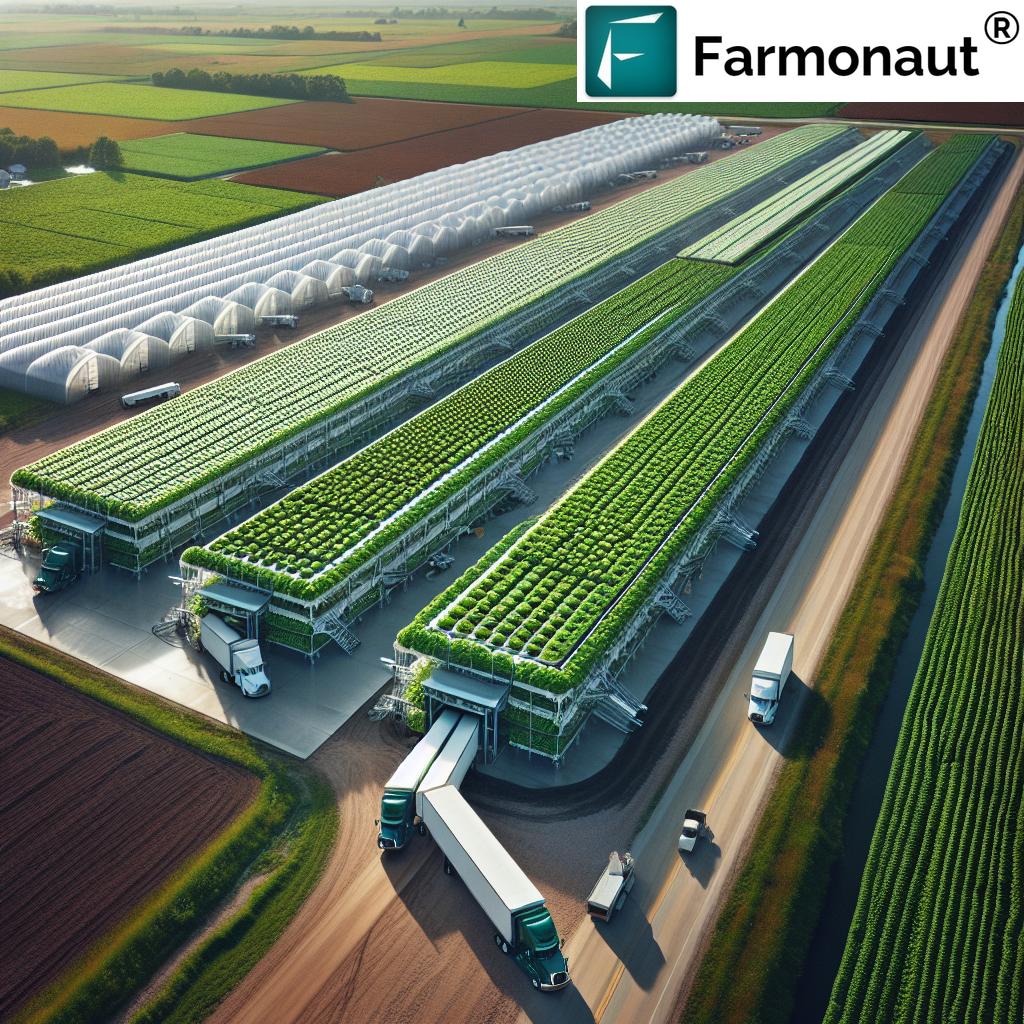
The Role of Technology in Modern Agriculture
While Revolution Farms focuses on hydroponic technology, at Farmonaut, we’re leveraging satellite imagery and AI to revolutionize farm management. Our platform provides real-time crop health monitoring, weather forecasts, and expert crop management strategies, complementing the precision achieved in hydroponic systems.
For those interested in exploring our solutions:
For developers interested in integrating our technology, check out our API Developer Docs.
Challenges and Opportunities
While the acquisition of Revolution Farms by Peckham presents numerous opportunities, it’s important to acknowledge potential challenges:
- Integration: Merging two distinct organizational cultures and operational systems may require time and careful management.
- Scaling: As demand grows, maintaining quality and efficiency while scaling up production could be challenging.
- Training: Developing effective training programs for individuals with disabilities in a high-tech farming environment may require innovative approaches.
- Market Competition: As hydroponic farming becomes more popular, increased competition may affect pricing and market share.
- Energy Costs: Indoor farming can be energy-intensive, so managing electricity costs will be crucial for long-term sustainability.
However, these challenges also present opportunities for innovation and growth. By addressing these issues head-on, Peckham and Revolution Farms can set new standards in sustainable agriculture and inclusive employment practices.
The Bigger Picture: Sustainable Agriculture and Social Responsibility
The partnership between Peckham and Revolution Farms exemplifies a growing trend towards integrating sustainable business practices with social responsibility. This approach aligns with global efforts to achieve the United Nations’ Sustainable Development Goals, particularly in areas of decent work, economic growth, and responsible production.
Key takeaways from this acquisition include:
- The potential for sustainable agriculture to create meaningful employment opportunities
- The role of innovative farming techniques in addressing food security and environmental concerns
- The importance of cross-sector collaborations in driving social and environmental progress
As we at Farmonaut continue to develop our satellite-based farm management solutions, we’re inspired by initiatives like this that push the boundaries of what’s possible in agriculture. Our technology complements these efforts by providing data-driven insights that can further optimize farming operations, regardless of the method used.
Looking Ahead: The Future of Farming in Michigan and Beyond
The acquisition of Revolution Farms by Peckham is more than just a local success story; it’s a glimpse into the future of agriculture. As we face global challenges such as climate change, population growth, and resource scarcity, innovative approaches like this will become increasingly crucial.
We can expect to see:
- Further integration of technology in farming, from AI-driven crop management to advanced indoor farming systems
- Increased focus on sustainable practices across the agricultural sector
- More collaborations between businesses and social enterprises to address community needs
- Growing demand for locally produced, sustainably grown food
At Farmonaut, we’re committed to being part of this agricultural revolution. Our satellite-based solutions provide farmers with the data and insights they need to make informed decisions, whether they’re managing traditional outdoor farms or cutting-edge hydroponic facilities.
Conclusion: A Model for Sustainable Growth and Social Impact
The acquisition of Revolution Farms by Peckham represents a powerful model for how businesses can drive economic growth while making a positive impact on society and the environment. By combining sustainable agriculture jobs with vocational rehabilitation programs, this partnership is creating a ripple effect of benefits for the community, the economy, and the planet.
As we look to the future, it’s clear that sustainable, technology-driven approaches to agriculture will play a crucial role in feeding our growing population while preserving our natural resources. At Farmonaut, we’re proud to be part of this movement, providing farmers with the tools they need to optimize their operations and contribute to a more sustainable future.
Whether you’re a farmer looking to leverage satellite technology for your operations, or an agriculture enthusiast interested in the latest innovations, we invite you to explore our solutions and join us in shaping the future of farming.
Farmonaut Subscriptions
Frequently Asked Questions (FAQ)
- What is hydroponic farming?
Hydroponic farming is a method of growing plants without soil, using nutrient-rich water solutions instead. This technique allows for year-round crop production and uses significantly less water and land compared to traditional farming methods. - How does the acquisition of Revolution Farms by Peckham benefit the community?
This acquisition combines sustainable agriculture with job training opportunities for people with disabilities, creating a positive impact on both the local economy and social inclusion efforts. - What are the main advantages of hydroponic lettuce farming?
Hydroponic lettuce farming uses 90% less water and land than traditional methods, allows for year-round production, and reduces transportation distances, ensuring fresher produce for consumers. - How does Farmonaut contribute to sustainable agriculture?
Farmonaut provides satellite-based farm management solutions that help farmers optimize their operations, reduce resource waste, and improve crop yields through data-driven insights. - Can hydroponic farming be combined with other agricultural technologies?
Yes, hydroponic farming can be integrated with various technologies, including AI-driven crop management systems and satellite monitoring, to further enhance efficiency and sustainability.
Earn With Farmonaut: Affiliate Program
Earn 20% recurring commission with Farmonaut’s affiliate program by sharing your promo code and helping farmers save 10%. Onboard 10 Elite farmers monthly to earn a minimum of $148,000 annually—start now and grow your income!






